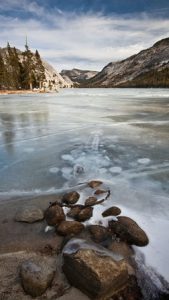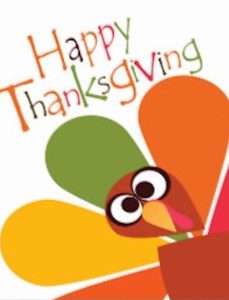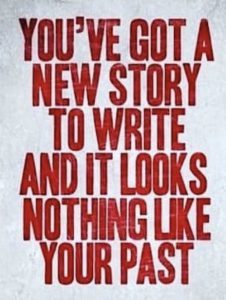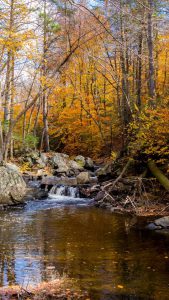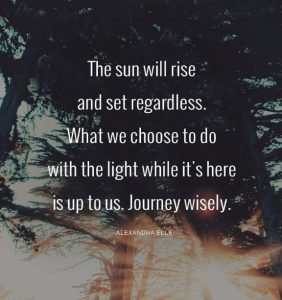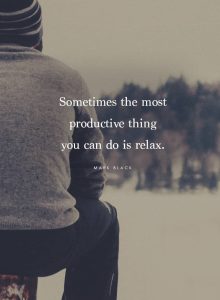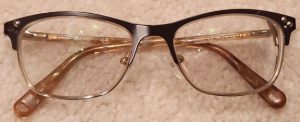This is the sixth story in a series. Click here to read all parts from the beginning.
The icy wilderness beyond the oversized door looked eerily empty. It wasn’t altogether devoid of life; a few scrawny conifers clung to the rocky slopes on either side of a frozen lake, but I saw no animals or birds. Sunlight brightened the scene but gave little warmth.
I didn’t see any sign of dragons, either, which was one advantage of suddenly finding myself in a bitterly cold wasteland. Dragons, like all reptiles, preferred warm climates. Still, if I froze to death here, it wouldn’t matter that nothing was trying to eat me.
Going back the way I came wasn’t in the cards, though; not with dragons and sea serpents in the way, and of course I had no clue how to reopen the portal to my own world even if I could reach it. Lacking any other choice but to go forward, I let the big door swing shut behind me, but not until after I checked to make sure the knob would turn from this side. No sense locking myself out when I had no idea what I’d find here.
I took off the hood of my fire suit to get a better view of the landscape without the visor. Looking up, I saw no flickering magical portals anywhere, which didn’t surprise me. After all, nothing was ever that easy. I did see two blood-red moons that hung near the horizon, both large enough to give the unsettling impression that they might fall out of the sky at any moment. The sun was low enough that it didn’t look like I could walk far without losing the daylight.
The cold wind in my face was strangely constant, without lulls or gusts. It smelled of ice and rock, with maybe a trace of woodsy scent from the trees, but that was more likely my imagination. Putting my hood back on so I wouldn’t lose too much body heat, I decided to start walking to my right, toward the setting sun. If I didn’t find shelter in that direction soon, then I’d have to turn around and come back here. The hard stone of the passageway inside the door wouldn’t be the most comfortable place to sleep, but it definitely beat freezing in the open air.
I picked my way carefully along the rocky shore, feeling very thankful for my sturdy shoes. A clump of conifers nearby offered a windbreak and more level ground, so I headed toward it. There were no paths, which suggested that no predators were likely to be lurking, but I kept a close watch anyway.
After a while, the trees grew more densely. Calling them a forest would still have been a stretch, but they could at least pass muster for a respectable woods, of the sort that lakeshore cabins back home in Tennessee might’ve had. The sun was just about to sink below them, which would have been my cue to turn around, when I saw the bright glow of a lantern through the trees.

